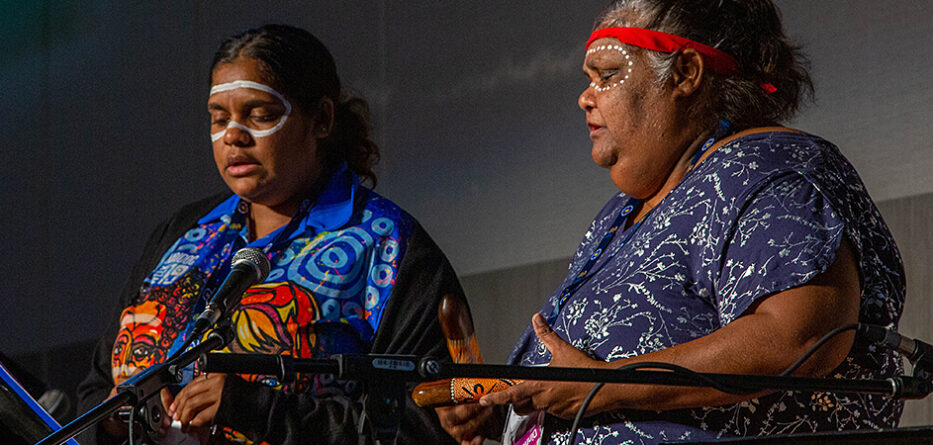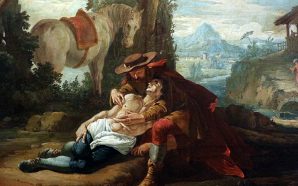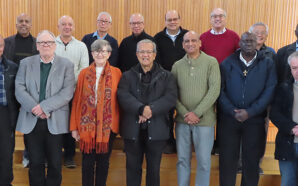For thirty-five years we have been looking for a national song that captures the excitement of living in this vast continent and captures something of its magic something that reminds us just who we are and even better who we could be. Listening to the French, or the South Africans or the Kiwis singing their national songs leaves an ache for a similar song that we can sing with some passion – like we really mean it.
The short history has been far from inspirational. Our National Anthem before the advent of the Whitlam Government was God Save the Queen. In 1976, a plebiscite was asked to choose among a number of contenders – Advance Australia Fair and Waltzing Matilda led the pack – and the winner was Advance Australia. When we started to sing it and listened to the lyrics there were a couple of hiccups. Australian Sons let us rejoice (oops – forgotten something here); that we are young and free (oops – 60,000 years. Better fix that.) Apart from the words, the music designed to lift our spirit was less than brilliant. Scarcely the Marseillaise.
The other contender was Waltzing Matilda – the words from one of our classic storytellers Banjo Patterson told a different tale of a homeless pilgrim on the track, his home on his back, a sheep stealer, who escapes the law by drowning. We knew it, We loved it, We sang it. Alas, it didn’t pass the dignity test.
Ten years later, Bruce Woodley from The Seekers took a Bushwackers song and put another story to it. We are one We are many: began to acknowledge our enormous history.
‘I come from the dreamtime:
from the dusty red-soil plains;
I am the ancient heart the keeper of the flame;
I stood upon the rocky shores:
I watched the tall ships come;
for forty thousand years I’ve been The first Australian.’
The verses go on to talk about our convict chains, the hardship of living without rain, of battlers and bushies; sharing our dreamtime with people from all the lands of the earth. We know it. We love it, We sing it. And tell me who doesn’t tear up.
In this time of the Uluru Voice from the Heart, another song has set our blood tingling. Enter Johnny Farnham. Should we listen to the voice of people of the dreamtime?
‘You’re the voice, try to understand it;
make a noise and make it clear, oh, woah;
we’re not going to sit in silence,
we’re not going to live with fear, oh, woah’.
We know it, We love it, We roar it out with ‘foggy’ Farnham.
Putting aside the search for a song there may be an even more critical question at stake here. What does it mean to be Australian? What are the stories we tell about ourselves?
Glancing at the last 230 years – one tick of the clock in the thousands of years of history of this ancient continent – some of the stories still make us squirm. So often we have defined ourselves by those who are in and those who are out, simply by excluding others from the story. Was a bit like passing the rigid hide-bound tests to get into some exclusive club.
Back then when the tall ships arrived we knew we were different from those astonished eyes from the shore. We took the land – it was empty for the taking. The lawyers had their term Terra Nullius.
Soon the newcomers began to draw their distinctions – who were in and who were out. Genuine Australians in – the others out. ‘Currency lads and lasses’ carrying implications of inferior quality, were distinguished from the ‘sterling’ children those of good British stock. Then the hard-working Chinese, attracted to the goldfields, quickly aroused primitive fears of an alien takeover; leading to the benighted principle of a White Australia embedded by Alfred Deakin and the new Federation. In the Conscription debates of the First World War, loyalty to Britain was the sticking point. During the Great Depression, ‘No Irish need apply’ signs were attached to employment advertisements. After the War, an avalanche of arrivals from Europe were called ‘New Australians’ (was there a hint of them being not ‘real’ Australians in that choice of that name?). Then those desperately seeking refuge came in boats packed to the gunwales to be imprisoned offshore for years. Eventually, Aboriginal and Torres Island people were allowed into the club and included in the National Census in 1967 nearly two hundred years after the tall ships arrived. Rome wasn’t built in a day, y’know!
What it means to be Australian is a question that has shaped our recent past. The last 230 years has been scarred by fear – an anxiety triggering the exclusion of the outsider. Even First Nations People were astonishingly regarded as outsiders. On the other hand, the eloquence and generosity of the Uluru Statement from the Heart is a call to include all. We are invited to walk together towards a new future, with a new understanding of who we are. In the words of Indigenous leader Noel Pearson: ‘When we bring together the ancient indigenous heritage which is our foundation, the British institutions built upon it, and the adorning gift of multi-cultural migration,’ we can tell a story that recognises Australia is unique as a nation.
Apart from respecting the original custodians of this land, listening to the Voice may bring to us all a more profound appreciation of who we all are indigenous and non-indigenous — a people inhabiting this immense continent walking together into the future.
And at the same time, how about a decent song we can sing as we carry our swag and waltz together into an unknown future.
Monsignor Tony Doherty is a retired priest from the Catholic Archdiocese of Sydney. Reproduced with permission from his personal blog, Breaking Bread Together.








